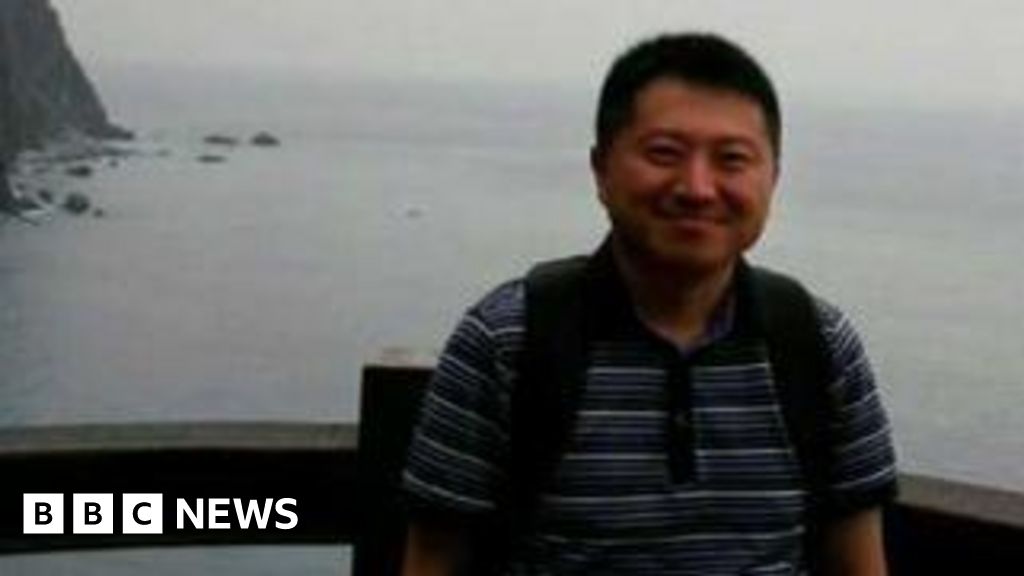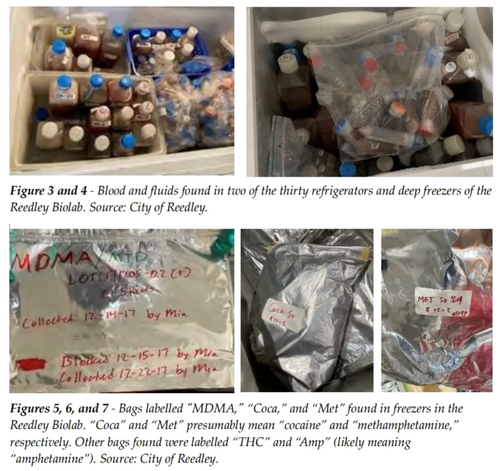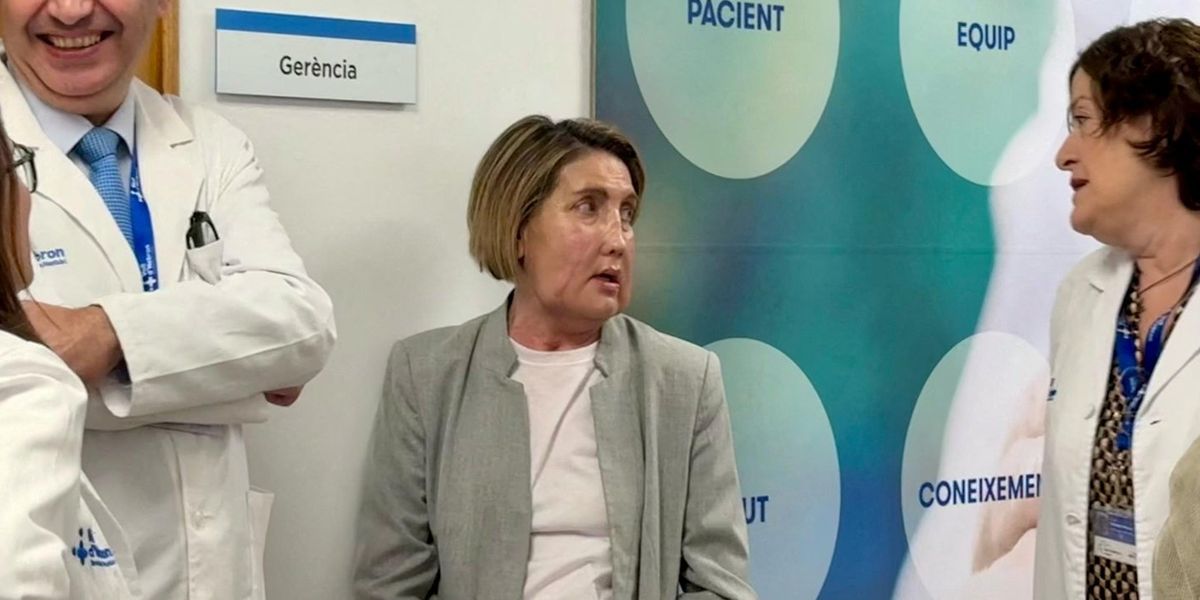Episode 3: “Justice Coming for Fauci”
1 Comments
Leave a Comment Cancel Reply
You must be logged in to post a comment.
(0:01 - 0:20) Welcome to Focal Points. Today, we have two attorneys from the Veers Law Group who have issued seven criminal referrals to the attorneys generals in seven states. And so Mimi and Rachel. (0:20 - 0:35) Rachel, why don't you go first? Tell us a bit about yourself. Sure, thank you so much for having us on today, Nicolas, and for reporting on this. It's been fantastic for the victims that I'm forward that we're advocating for. (0:35 - 0:57) So I founded Veers Law Group, I'm here in South Florida, and I got into this fight, I think like many of us did. We saw what was happening now five years in, and you see that there isn't somebody doing what needs to be done, fighting against tyranny. And so you jump in. (0:57 - 1:25) And I started out with some cases on mandates, both on the mask mandates for the schools and vaccine mandates for employees. And from there, while all that was going on, and we'll talk about it, there's a whole enterprise going on. We saw what was happening in hospitals, and that's what led to this particular effort where we wanted to seek justice and accountability on behalf of victims all over the country. (1:27 - 1:37) Wow, wow. So I applaud you for the efforts that you have done. And maybe, why don't you tell us a bit about yourself? Yes, my name's Mimi Miller. (1:37 - 1:49) I'm also an attorney. And I got into this fight, let's see. So early in the pandemic, my dad was one of the freedom doctors who stood up and spoke out at his hospital. (1:50 - 2:14) And so I kind of got involved a little bit more locally there. And then I worked as a county prosecutor for quite a bit of time, putting people in jail, working with police who are investigating crimes, and really understanding the criminal law side of things. And then I believe in 2023 is when Rachel and I met and started working together on this project. (2:14 - 2:32) And it really stemmed from the victims coming forward, sharing their stories, talking about what had happened to them and their loved ones in the hospitals. And we realized that nothing could be done in the civil lawsuit side of things. Nothing could be done by bringing a lawsuit for the victims just because of the PREP Act and the CARES Act and the way those were working. (2:32 - 2:53) And so we decided to put together these criminal petitions, petitions to state attorney generals or county district attorneys, requesting that they would investigate the suspected crimes against their constituents, against their citizens that they took an oath to investigate and get justice for. So that's kind of where we're at. Wow. (2:53 - 3:40) So why don't you tell us a bit, either one of you can pitch in here. So what crimes do you think that Fauci and all these other top public health officials have committed? Is it because of the hospital protocols and mismanagement, the suppression of these early treatments, suppression of proper treatments? Was it because of the vaccines were untested, mandated? Why should they be going to jail basically? Well, right. So go ahead, Mimi, do you wanna start? We can talk about how we've worked in the state codes and go ahead. (3:41 - 3:56) Sure. And so the crimes that we're looking at, it depends state to state because these are state efforts, it's not federal. And so in the states, like we said, like we've seen what's happened to people like a mandate across the country. (3:56 - 4:42) So the things that happen to victims, they're uniform across the country. So in every state, the types of crimes that we're looking at, that we're seeing are murder and involuntary manslaughter, things like assault and aggravated assault, state RICO charges, racketeering, abuse of vulnerable adult, trafficking of persons for forced labor, as well as in the states that have the crime terrorism, which is really not the like exploding buildings oftentimes the way the statutes are written, doing crimes, harming people to influence society, to influence policy, the conduct of the state, the conduct of the civilian population. And so those are the types of crimes that we're looking at. (4:43 - 5:10) So that's terrorism. So explain to me kind of in detail, how, who, did all of them, are all of them being accused of terrorism or some of them? Like explain to me, you know, what, because here it is for our audience in the, this is the criminal, is this one of the criminal referrals, correct? Yes. Yes, this was actually submitted to Arizona's AG. (5:10 - 5:21) I believe that's what you have there. So this is a, I guess we call them petitions. When we send them to the AGs, we request referral when this is sent out to the county prosecutors. (5:22 - 5:44) So the district attorneys or county attorneys, because the procedure, criminal procedure in certain states requires that county prosecutor, if they want a statewide investigation, they have to then refer it to the state level AG. So just a little semantics, but that's essentially it. But to answer your question, this is a COVID criminal enterprise. (5:44 - 6:14) That's what I call it, because this is a criminal enterprise. And there are starting all the way from the way that this particular coronavirus was, frankly, manufactured to leaked, to then what was happening in the hospitals under CARES Act, predominantly CARES Act funding and PREP Act, excluding liability and identifying what would be countermeasures or the protocols. They're not really medical treatments. (6:14 - 6:56) They're just, we can go into that. All the way to then using the death tolls in the hospitals, as Mimi pointed out, to create a particular sentiment in the population, terror, fear, because of this ostensibly very lethal virus, which we know it wasn't statistically, in order to then promote or manipulate the population into certain action, one of which would be taking the shots, but also into certain policy measures. And so this is an overall, and that's just a 30,000 foot view of what we now know as far as the entire enterprise. (6:56 - 7:11) And at every single point I just named and others I haven't, there is money exchanging hands. So this is crime for profit. And so that's what makes this also, I think Mimi mentioned, most of the states have a racketeering, anti-racketeering criminal charge. (7:11 - 7:54) And so that's also what we've identified in these briefs. And so to that end, we've identified only a small handful by name of policy makers sort of at the top level, but then all the way down to at the state level, the administrations of the various hospitals, because without the administrations choosing to follow the orders that they were given and take the money that they're being offered, then these crimes could not have been executed. At the hospital level, these patients could have had the protection of the administration and then the administration's incentives to the healthcare providers. (7:54 - 8:15) That could have been a stop. That could have been a protection, but instead they were part of the entire enterprise. And so that's why we've identified these particular, we call them accused, but suspects, and we are seeking investigation into them at the federal, all the way down to the state administration, excuse me, the hospitals in that state, their administrative boards. (8:17 - 8:45) So you guys have, and I've heard you guys have collected, about how many victims do you guys, have you guys been in contact with? So in the seven states we just filed again, we'll be sending out the notice on that. We resubmitted in Florida. And when we first submitted in October, 2023, which was our first submission to AG Moody, there was, I wanna say 32 victims there. (8:45 - 8:58) We now have 75 in Florida and many more that we still, we're gonna be doing supplements as we go. In Texas, I wanna say there was 46 victims at the beginning. We now have more. (8:58 - 9:25) And in Louisiana and Arizona and Oklahoma, also Missouri, I think you're looking at over another 75 to 100 more. So, but again, Nicolas, these are representative of tens of thousands of victims across all of these states. And so, but we're really pleased to see, this many, several hundred coming forward and asking their law enforcement to investigate. (9:26 - 10:03) So many of you have heard of all these people, the accused, Anthony Fauci, Frances Cullen, Deborah Burks, Rochelle Walensky, Ralph Baric, Peter Daszak, and even Robert Redfield. So what could Robert Redfield have done that you guys think? I can take that. One of the things why we believe he needs to be investigated to see whether charges are appropriate is actually looking at a 2019 Ebola study, because in that study, one of the drugs that they were testing for Ebola was called remdesivir, which I think everyone's heard of by now. (10:04 - 10:25) And Robert Redfield and Anthony Fauci were actually thanked in that study for their personal involvement in the project where remdesivir was actually pulled before the completion of the study because it killed too many people. And then he was CDC director during COVID, where we all know what happened with remdesivir. And so for him to not have knowledge would be very shocking to me. (10:25 - 10:39) And so we believe that that's something that needs to be investigated and looked at. Wow, wow. Yeah, so nobody's free from the law, right? Nobody has immunity and everybody should be investigated if they have done wrongdoings. (10:39 - 10:47) And so you guys heard that. And so what about Peter Hotez? We know what he's up to. He loves his vaccines. (10:47 - 10:59) He loves injecting as many vaccines as he can into children. What do you think he could have done? Go ahead, Mimi. Okay, yeah. (10:59 - 11:06) So I think part of that too is a lot of his public statement. He's a scientist. He was deeply involved in these issues. (11:07 - 11:24) He knew the truth about the vaccines. He knew the truth about the other countermeasures, we'll call them, because they're not treatments, they're countermeasures. And he still pushed this narrative, this idea that, oh, the vaccines are safe and effective. (11:24 - 11:39) Well, we know that's not true. And we know that everyone involved knew that that wasn't true. The same thing with all of the other treatments, the alternative treatments that were banned or blocked or suppressed, the other treatments like remdesivir that were promoted, the masking, the social distancing. (11:40 - 11:55) So he was a big part of and a big proponent of that narrative and has spoken very strongly to those issues. And has used a great reach that he's built for that purpose. And so we believe that his involvement in that and his purposes for doing that should be looked into. (11:56 - 12:21) Wow, wow. And so like you mentioned earlier, so terrorism. So yeah, it does seem that terrorizing a population, trying to increase their perceived fear of a pathogen or emergency in order to increase uptake of a countermeasure that's experimental and pretty dangerous and deadly. (12:22 - 12:53) So is that what this terrorism is? Did I explain that correctly? In a nutshell, yeah. The people consider terrorism maybe in layman's terms a little differently, but as far as being able to find the elements under the law, you engage in crimes for the purpose of terrorizing the society in order to effectuate certain outcomes. Those could be conduct outcomes by the public and policy outcomes. (12:53 - 13:11) And that's what we see here. I think you summarized it fairly well. And one of the specific elements, or I should say one of the ways in which they were able to manipulate this fear is through the death count. (13:12 - 13:27) I mean, I think we all remember how perverse it was that suddenly all of the mainstream news were running death tickers. I mean, at the time I recall people calling it, it's like a death cult. We were so fixated on people dying. (13:28 - 13:49) And so that was pretty grotesque in and of itself. It was traumatic to the people who were suffering from this, who were undergoing. I mean, and all this is laid out in the petition, but to really bring it home as to the terror campaign, it's not, I don't wanna say it this way. (13:49 - 14:07) It's not merely that there was a tragedy and the outcome was that certain people passed away. There are, in fact, the form of best group has come up with 25 commonalities of ways that patients were treated in the hospitals and it amounts to torture. And I'm not saying that lightly. (14:08 - 14:21) People were deprived of nutrition. They were deprived of fluids. So they were getting pneumonia, bacterial pneumonia at the same time they were being deprived of fluids and given remdesivir, which causes kidney failure. (14:22 - 14:48) They were denied anyone coming to see them, touch, affection, their families coming. In many cases, we heard stories of people being told by nurses and doctors, well, you're not gonna make it out of here or you're gonna die. All of the things that we know to be contrary to what the human psyche and body needs to recover. (14:49 - 15:08) And they were deprived of vitamin D. They were deprived of vitamin C. Basic, very simple kinds of treatments, not even medications, vitamins. And they were being denied these things. Ivermectin was known to be useful against COVID, especially early on. (15:08 - 15:40) So was hydroxychloroquine to the extent that the US actually had a stockpile, of course, for many different reasons, but that was in the works to be used for outpatients to extend the time of what was considered a pandemic. All right, so we talked about terrorism. So how did they assault people and how does it constitute aggravated assault? I'll start, Mimi. (15:40 - 16:01) It's predominantly the lack of informed consent. People had medications and treatments done to them and they did not give their consent or they specifically, like they weren't allowed to say yes or no or they specifically said no and these treatments were given anyway. And I'll let Mimi flesh that out a little bit. (16:03 - 16:15) Yeah, and so in many cases, what we've seen from our victims is that they refuse things like a ventilator or remdesivir. And they said, I do not want this. Do not give this to me. (16:16 - 16:24) And then the hospitals did it anyway. They gave it even though there was no consent. And assault is an unwanted touching, an unwanted contact. (16:25 - 16:40) The other thing that we saw often, and this gets more into some of the other charges, is when people tried to leave the hospitals and said, you're not providing care for me the way that I want. I want to leave and go home or I wanna leave and go to another hospital. They wouldn't allow them. (16:41 - 16:49) Now, we have patients' right to self-determine. We have leaving against medical advice. It's an established practice, but they will refuse that. (16:50 - 17:07) When you come from assault to aggravated assault, that's where someone has caused serious physical injury or death in some cases. And so it's really, it's that serious physical injury, a debilitating injury, something that's not just a bruise. It's something that's lasting and harmful. (17:07 - 17:19) So when we talk about, people got kidney failure because they were given something without their consent. That would be a serious physical injury, something like that. Or what we call- Yes, yes, that makes sense. (17:19 - 17:49) Absolutely terrible that this has happened to people. Now, what about the big one here, murder, involuntary manslaughter, mass negligent homicide? Tell us, what is this? Because honestly, I feel like personally, this, the mRNA injections, rolling them out for six-month-olds at this point constitutes mass negligent homicide at least. So is that part of it or what else? Tell us a bit about this. (17:50 - 18:04) Well, I'll let Mimi talk about the actual elements on this one. But in general, again, just to clarify, our efforts are very focused in on hospital deaths. So hospital homicide. (18:05 - 18:37) We have outlined, because it's very important to tell the entire context, we've outlined the enterprise. And again, the terrorism charge really makes that clear, as does the racketeering charge. But when it comes to murder, we're specifically talking about patients in the hospital who were denied lifesaving treatments, known to be lifesaving, and were given, often against consent, which we just talked about, life-threatening and lethal protocols. (18:38 - 19:01) That's where it comes into murder. And I'll let Mimi talk a little bit more about that, because that's a very serious charge and requires a particular kind of intent. Yes, and so to take an example, say remdesivir, what we saw in the Ebola study is that before that study was completed, 53 plus percent of people that were given remdesivir died. (19:02 - 19:15) So we know that it has an over 50% kill rate. So you wanna talk about negligent homicide, reckless murder, that's reckless. It's a 50-50 chance, less than a 50-50 chance of survival at that point. (19:15 - 19:28) So you know that more likely than not, you're gonna kill this person. That's not healthcare. And like Rachel said, there's a lot of science behind many treatments, ivermectin, hydroxychloroquine, fluoxetine. (19:29 - 19:51) There's a lot of big ones out there that have shown and were known at the time to be helpful, to help people, even in early treatment, not need to go be hospitalized, but they did it anyway. The other thing, another big example that we've seen is with ventilators. And I feel like pretty much everyone has had this experience where they talked to people that were in the hospitals or had loved ones in the hospitals. (19:52 - 20:14) And it's common knowledge, basically, that as soon as somebody was put on a ventilator, they died. No one really came back from that. And so, especially after the first little bit of time, when you see that pattern, when every single patient you put on a vent dies, and then you have people refusing the vents and you put them on anyway, that really helps us show the intent behind this. (20:16 - 20:36) And then I also wanted to comment on something because you've mentioned the vaccines and how horrible they are. And Rachel's mentioned that we've really limited our scope to focus on the hospital homicides. Part of why we've done that is because a lot of the people that we're petitioning to investigate, they're not people that have been studying these things for years, like most of us have. (20:36 - 20:51) We've been in this, we've been seeing the truth for years. A lot of the attorneys, a lot of the judges, this is not something that we've done and it's not something that's familiar to them. And so really our petition is supposed to be a starting point where we've said, look, there's copious amounts of evidence. (20:52 - 20:58) Here's actors that we can tie to these crimes. Here's victims that have suffered the results of these crimes. This is your starting point. (20:59 - 21:17) Now go and investigate, do your job. And so we think that a lot of stuff with the vaccine injured, the vaccine deaths that didn't happen directly in the hospitals, that will come in or it will be treated as a separate prosecution. But we've made that choice because we're really trying to get actual action. (21:17 - 21:51) We're trying to get these investigations started. And then once they start seeing the truth and really investigating and seeing what happened, when they start seeing everything with the hospitals and the protocols and how that's also includes the vaccine protocols, that will include, I think the vaccine injured as well. Nicolas, one of the things I wanted to point out for your audience is we also know at this point and other lawyers that we work with have the evidence that COVID shots were given to patients in hospitals against their consent and often when they were incapacitated. (21:51 - 22:03) So they were not able to get consent. So again, as we were talking about, the COVID shots play into the entire enterprise. They play into the crime. (22:03 - 22:31) Everything is interconnected. However, we're trying to find our way in to law enforcement, as Mimi mentioned, some of whom aren't even very familiar with all of this in such a way that they're not overwhelmed, but that they have enough to sink their teeth into to start looking at. And we hope that the evidence will then lead them to the correct conclusions and that they'll do what they've been appointed to do. (22:32 - 23:05) I think another thing that I learned is that, and you probably would know this better than I, remdesivir not only had an over 50% death rate, but it had that rate in individuals in the study who did not have kidney problems. So it's not just that it exacerbates or it's particularly bad for those with kidney problems, it actually can kill you and cause kidney problems. So that to me is even, it goes even beyond that. (23:05 - 23:18) And it's very, very clear that there was intent here. Gross recklessness is probably a light way of saying the kind of intent and culpability. Wow, wow. (23:19 - 23:30) So it's clear, it really is. So there's all these victims and all these people that are likely responsible. It truly is shocking. (23:30 - 24:04) Now, it's not shocking to people like us who have been looking at this for so long, but I see exactly what you're saying in that we have to start somewhere, right? We can't just take the whole mountain and start from there. No, we gotta start somewhere because there's nobody else. I mean, I'm not aware of anybody else that is doing what you guys are doing, right? Tell me if I'm wrong, is there anybody else doing this? Well, so we're not the only ones who have looked at the criminal charges. (24:05 - 24:51) I would say there's, from my knowledge, and I hope I'm not leaving anybody out, I'm only aware of maybe three or so teams that have been approaching the criminal side of things. We are the only ones that I'm aware of, and we're collaborating with everybody that's doing this, but we're the only ones that are going, specifically, very directly into state criminal code only. And again, the reason for that is, when we launched this project, and I started working on this and I was talking with some other attorneys in late 2021 and early 2022, the goal is to eliminate as many obstacles that we can expect as possible so that there's a clear path for law enforcement. (24:53 - 25:05) And if we, for example, we've kept it very brief. There's mountains of evidence, but we've kept this summarized and brief to the point. We know these are litigators. (25:05 - 25:14) I'm a litigator. It would be hard to read many, many, many pages of evidence and really process all that. So we've kept it truncated. (25:15 - 25:38) We've stuck to state crimes only so that there is no excuse that there's no jurisdiction, clearly jurisdiction. We have already addressed the issue of causation because this is an enterprise. So the person who puts the policy in place is not the person sticking the needle in somebody's arm or sticking or intubating the patient. (25:38 - 25:46) So we've addressed that in our brief. We said, there is causation. Here's a theory of causation that is in use in the United States. (25:47 - 25:54) I wanna say command and control. We've also addressed the intent questions. The commander, excuse me, right. (25:54 - 26:12) And we've also addressed the, again, like we said, we addressed the criminal procedure. Does this have to start at the county level or not? And so all of these things are really strategic. I wouldn't say there's any right way to seek justice. (26:12 - 26:40) It should, you just seek justice and tell the truth, but the process by which we've done it has just been strategic to give a roadmap and hopefully tie it up with a ribbon so that somebody who's willing to investigate this has a way to get started. And so that's why this project has been done in this manner. Wow, well, both of you sound very smart. (26:41 - 27:20) And I wanna thank you so much for doing this important work that needs to be done, right? There needs to be accountability for the crimes that have been committed these past five years, because if there's no accountability, nobody's gonna learn from their mistakes and the same things will be repeated the next time. And it's just, so this stuff like this needs to happen. And why don't you tell us, is there anything new, any new developments that have been going on? So right now, these were with seven states. (27:20 - 27:32) Have any of them responded? Is there anything new? Are there any active criminal investigations? Give us an update. Well, we're very pleased. I'll give you the good news first. (27:32 - 27:45) We're very pleased to announce that there are two open criminal investigations. Because they are ongoing, they are confidential, but they are in two different states. So we really applaud the efforts of those prosecutors. (27:46 - 27:59) We're really grateful that they're taking these things seriously. And we hope that they are just the beginning, the forerunners for many, many other prosecutors to take this up. The bad news is, of course, that we do have other responses. (28:00 - 28:23) Sometimes we get no response, but there are other responses from other AGs that are not favorable. And we'd like to challenge and ask them to reconsider their position. I know AG Drummond in Oklahoma has officially indicated that he's not going to look into this. (28:23 - 28:34) And I find that problematic. He's running for governor. He wants to have more authority, more responsibility to his constituents in Oklahoma, but he's refusing to do his job, even to investigate. (28:34 - 28:47) To be very clear, we've asked for investigation. And if there is probable cause, which we're demonstrating, then to prosecute. We have not demanded that anybody prosecute without going through the appropriate procedure. (28:48 - 29:03) So to say that you will not investigate, in my view, is a dereliction of the duty of your office as a prosecutor. So that is very troubling to hear that response. We also just got a response from the AG of Arizona. (29:04 - 29:27) And in short, we were told that based on a review of all information provided to our office, it has been determined that your local police department would be your best option to file this complaint. And so I think that's disappointing. We'd like to see a re-review of what we've presented, because I think it warrants investigation at a minimum. (29:27 - 29:50) And another thing, Nicolas, I wanted to point out is the other very important element of the way that we're approaching this is that it is the victims and their families. So it's either survivors or the next of kin of those who've passed away, who are as witnesses coming forward and asking for investigation. So it's essentially the process of pressing charges. (29:50 - 30:28) You've been victimized and you go to your law enforcement and seek redress. And so when law enforcement says they don't wanna look into this or they pass it off to another office, it sadly does seem to be a dismissal of their constituents who are asking them to at least investigate and are willing to present their own testimony as a result. So we're looking forward to seeing a lot more county attorneys, district attorneys, and attorneys general take this seriously and at a minimum start an investigation and report to the American people what they're finding. (30:29 - 30:48) Yes, yes. And it's obviously, it's not unexpected that they're gonna be like trying to avoid it or claim, oh, there needs to be no investigations. We've seen the same thing with bills to ban these mRNA shots. (30:48 - 31:03) Nobody wants to hear it. They just claim it's all nonsense. And so unfortunately, yeah, it seems like so many people people are compromised and they are not doing their due duties. (31:03 - 31:16) They're not doing what they're supposed to be doing. They're not doing their job. And so like you guys laid out in these referrals, this criminal enterprise has victimized so many people. (31:17 - 31:44) And so there clearly needs to be investigations, right? It can't just be ignored. So is there anything you wanna say on that? Well, just Tuesday, I had the opportunity to sit with a widow who she's done a fantastic job of ministering to other people who lost loved ones. It's here in Florida in this particular hospital. (31:44 - 32:07) And she has been tireless to seek a meeting with the administration of that hospital. And they are named in our brief because there was quite a few victims from that hospital. And while her husband passed away in September of 2021, the first time she got even a meeting to talk to administration about what happened was Tuesday in April of 2025. (32:08 - 32:30) And so her tireless efforts are what got her that appointment. But it was very telling because when I was there, one unsurprising but really sad point is that they spent a solid 15 to 20 minutes trying to get me out of the room as her advocate. And again, I wasn't even there as a legal representative. (32:30 - 32:36) The statute of limitations has run for civil claims. I'm not recording them. There's no deposition. (32:36 - 32:42) This is not an adversarial proceeding. I'm there as an advocate for somebody who asked me. She's my friend. (32:42 - 32:49) She asked me to be there. And they spent that long, their attorney trying to get me out of the room. That's very telling. (32:49 - 33:07) And I think the other thing that was very telling from that conversation is the defensive posture that we're gonna see is, oh, it was just a, it was a terrible tragedy what happened. It's this huge pandemic. Everybody didn't know what to do. (33:07 - 33:18) We did our very best and we're so sorry for your loss. And we're so sorry we didn't communicate to you better. That's it. (33:19 - 33:40) So that's why our effort, I think, is so important. The efforts of all of the victims around the country to pursue criminal investigation. It's not sufficient for those who, I don't wanna be salacious, pulled the trigger, executed the policies that were being set at a federal level. (33:41 - 34:00) It's not enough for them to tell themselves. We took all this, this same hospital, by the way, has a huge new building. Guess where that money came from? And it's not sufficient to say, we're gonna try better to have our patient advocates talk to the families more frequently. (34:01 - 34:09) No, I wanna stop treatment, full treatment against patients. I wanna stop treatment for money. That's more important. (34:10 - 34:19) It's not enough to have a patient advocate to simply tell you that that's what's happening. What's happening needs to stop. And so I think it's very important. (34:19 - 34:50) If they're not going to be convicted and to use spiritual terms, repent of that conduct, then I think that they're going to need to be questioned at a level with higher stakes, which is a criminal investigation. So I wanna encourage everyone to keep pursuing justice keep telling the truth with respect and not to give up. Cause this is something that's very important and it cannot happen again. (34:51 - 35:19) Wow, very powerful words. So it sounds similar to, you know, somebody going to a party and poisoning, you know, 20 drinks and say, oh, I should have communicated it better that I poisoned your drinks. Is that similar to what's happening here? Yes, it's like saying I should have communicated better what the symptoms were of the poison that was killing this individual. (35:19 - 35:25) It's not acceptable. It's not acceptable. There needs to be an understanding. (35:25 - 35:44) And I wanna also point this out. I think you would, you know, that this would resonate a lot with you. And that is, if you're an expert in the field of seeing symptoms, diagnosing a problem and giving it appropriate treatment, it is insufficient. (35:45 - 36:07) It's actually incompetent to say that in, when presented with symptoms that you could not critically think about that come to a proper diagnosis and give adequate treatment. And that when you saw certain treatment was causing death in mass numbers that you didn't stop to think about it. That is not proper practice of medicine. (36:07 - 36:35) Another thing I heard was it was reasonable, for example, in this particular case, the patient had a cardiac event ongoing, untreated. And the answer given was we had to stabilize the patient, ostensibly stabilize the respiratory issue, the COVID issue before we could treat other things. That's incompetence. (36:36 - 36:50) I even know that's incompetence and it's not my field, but it was considered reasonable because everyone else thought it was reasonable. This is- There shouldn't be an excuse. It's unacceptable, absolutely unacceptable. (36:50 - 37:14) And we have to call that out. If that is what the standard is in the profession, we're in serious trouble and we need to address that systemically at the academic level and then at the residency level, because that is a setup for failure. And I think we saw that in the COVID pandemic era. (37:16 - 37:30) Yes, yes, we did. Go ahead, Mimi. If I could just jump on that quickly, I also wanted to point out that there have been, in addition to the victims and the victims' families who have not stopped telling the truth about what happened, like that's why this is happening. (37:30 - 37:43) Like that's why we're seeing results now, because they didn't give up. We've also seen an incredible number of whistleblowers come out. A lot of doctors and nurses who have come out and said, they were killing people in the hospitals. (37:43 - 37:51) This isn't okay. People that tried to talk to their administrators and show them, look at what just happened on my floor. We're killing people, you need to stop. (37:52 - 38:02) And instead of saying, oh, you're right, we should change our practice, they got fired. They got their licenses pulled. So we have a ton of doctors, a ton of nurses who did speak out. (38:02 - 38:12) They said, you're killing people. Doesn't matter whether I'm a doctor, a nurse, what specialty I'm in, I can see there's people dying that shouldn't die. And their administrators fired them. (38:12 - 38:25) They ostracized them from the medical society. Most, many of them, if not almost all of them have lost their licenses now. Many of them have had to move from their home state somewhere else just so that they can make a living. (38:26 - 38:46) And so it's more than just, I think, incompetence because people knew. And the whistleblowers have talked about how on the ground people knew and their administrators knew because the doctors and the providers told them that. I mean, there's one story that I know of where there was a trauma that came in and it was like a young girl. (38:47 - 38:56) And she was like in her like early, mid twenties, totally healthy, except for the trauma. She tested positive for COVID. And another doctor came to infectious disease. (38:57 - 39:04) This was early, early on in the pandemic. Remdesivir just rolled out. No one really knew its effects yet except for the policy makers. (39:04 - 39:15) And so this doctor asked like, hey, should I give this patient Remdesivir? Perfect candidate for the protocol. And the infectious disease looked at it and were like, you know what? She seems like a nice girl. Don't give her Remdesivir. (39:16 - 39:25) And so they knew, you know, and for anyone to pretend that they didn't know is just, it's such a bald-faced lie. Yeah. Wow. (39:25 - 39:36) So they didn't know. They knew and they still continued with these fatal acts that ended up killing people. So, you know, all of this is very serious. (39:36 - 39:59) And, you know, I think our audience understands that. Actually, if you ask anybody basically at this point in America, you know, should Fauci or any of these other people face justice? And I bet, you know, 80% of them will say yes. And we see that basically all over social media. (39:59 - 40:24) Now you, you know, this is obviously just anecdotal stuff, but, you know, you post anything about Fauci finally getting justice. I mean, those posts explode, right? I mean, it's clear that people do want these public health officials to face accountability for so much harm that has been incurred. That's right. (40:24 - 40:50) And I want to encourage your audience, you know, I think everybody by now either has an inkling or is very clear that there's a spiritual war involved and that the attack on human life is a spiritual problem. And so I want to encourage people and say, you know, keep praying, pursue justice. We are seeing people find their courage. (40:51 - 41:21) We are seeing those who did step out with courage, they're being vindicated. And if you're not certain what you can do in the face of such evil, because what we've just described today, and I usually remember to say this early on, but I've been working with this evidence for so long that it's very, very clear to me. But if you're just hearing this for the first time or somebody you're trying to talk to is hearing it for the first time and maybe they lost a loved one, this is overwhelming information. (41:22 - 41:48) The logical implication of all the evidence we're describing is that those who were in a position to govern and to serve the people and those specifically in a position to give treatment, medical treatment in a traumatic and crisis situation were engaged in murder for hire. That's the logical implication. And it's very dire. (41:48 - 42:00) And I understand that it's very difficult to take in. But I think we need to have compassion with people who are just understanding this for the first time. And we need to walk through it because it's true. (42:00 - 42:11) Just because it's difficult doesn't mean it's not true. But in light of that level of evil, we know that truth prevails. God is working through all of this. (42:11 - 42:21) We are gonna see justice. And I think we need to take hope and recognize that we can do something. You can go to your local law enforcement. (42:22 - 42:33) You know someone or you yourself have lost a loved one, you're welcome to contact our office. There's other groups we can connect you with. There's healing and there is help. (42:34 - 42:43) And we would love to see more whistleblowers come forward. You can do something against this evil. It is not too much. (42:43 - 42:53) It's not overwhelming. We just have to keep working together and we are gonna see justice and accountability. I hope, I really do hope we do. (42:53 - 43:08) And I also agree. I think we will see justice and accountability, especially thanks to efforts from groups like yours and the work that the both of you are doing. And you know, these people are satanic. (43:08 - 43:23) I mean, they're demonic. Look what they're doing. And so Mimi, are there any final words that you wanna tell our audience? I think just kind of piggybacking off of what Rachel said, you know, this is a spiritual battle. (43:23 - 43:30) We know that God is moving. You know, I know that God has brought lots of people connected to our project together. And we know that he is working. (43:30 - 43:42) You know, we see it across the country. And even though it doesn't always look like it yet, especially for those of us that have been fighting for so long, I really want people to take hope because we are seeing the cracks. We're seeing the cracks. (43:42 - 43:49) We're breaking through to the narrative and we're finally starting to get somewhere. And so people just shouldn't lose heart. Keep telling the truth. (43:49 - 43:58) Keep praying. Keep, yeah, keep pursuing justice because we know that God will get his justice. And we're just lucky to be part of the story. (44:01 - 44:20) Hey, how's it going? And this is why we do what we do, is for our kids. And I apologize, I did have the door closed, but we see that you didn't give me a moment. But anyways, it's because of our families and we know that we have to pursue justice. (44:20 - 44:29) We can't allow our kids to grow up and be in a society where this happens again. Yes, yes, this is for our kids. Kids, you know, we got to protect them. (44:30 - 44:43) And God will win in the end, but I want to thank both of you so much for coming on today. This is a great episode and it's absolutely vital information that people need to know. And thank you for what you do. (44:43 - 44:45) Thank you, Nicolas, we appreciate it.




















Yes. Justice is needed so we can hopefully encourage a termination of this death cult.